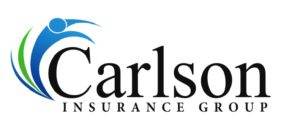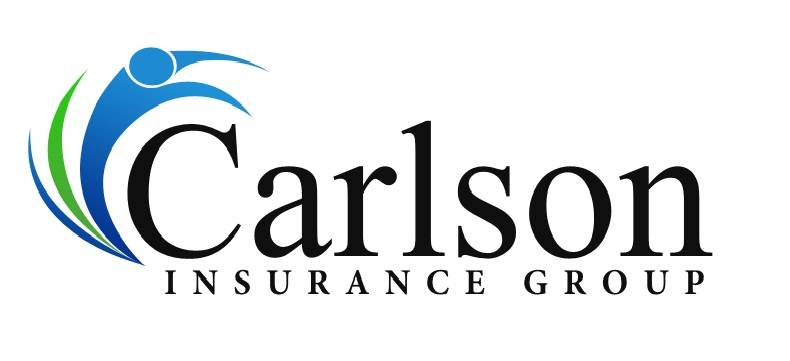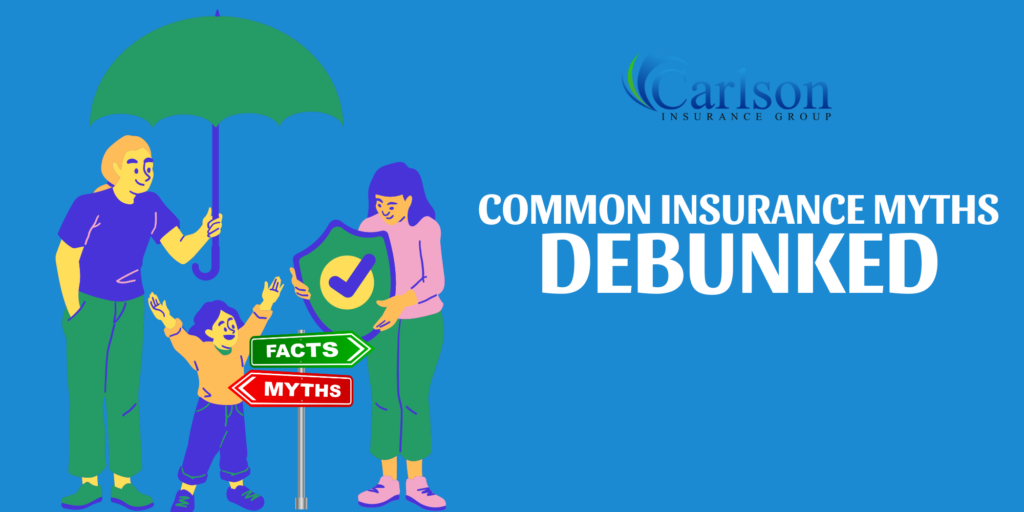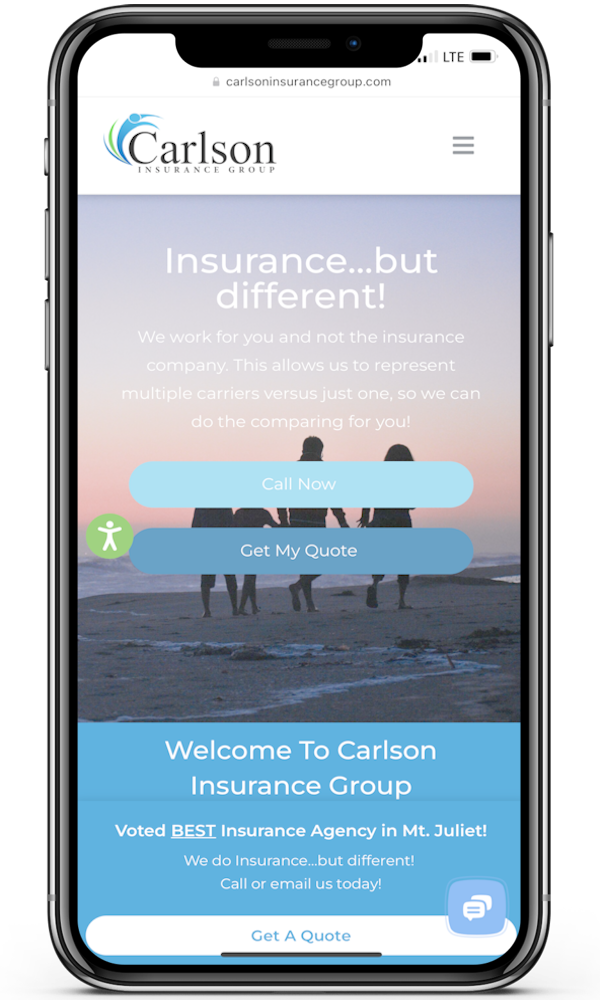Insurance is an essential part of modern life, providing financial protection and peace of mind in uncertain times. Despite its importance, there are numerous myths and misconceptions surrounding insurance that can lead to confusion and poor decision-making. In this blog, we’ll debunk some of the most common insurance myths, particularly focusing on home insurance and auto insurance, to help individuals in the United States make more informed choices. Whether you’re working with an insurance agency in Tennessee or elsewhere, understanding the facts can ensure you get the coverage you need.
Myth 1: Red Cars Cost More to Insure
One of the most pervasive myths in auto insurance is that red cars are more expensive to insure. The belief stems from the idea that red cars are more noticeable and thus more likely to be stolen or involved in accidents. However, the color of your car has no impact on your insurance rates. Insurers focus on factors such as the car’s make, model, age, engine size, and the driver’s history. So, whether you drive a red sports car or a blue sedan, your insurance premiums will be determined by these other factors.
Myth 2: Home Insurance Covers All Natural Disasters
Many homeowners believe that their home insurance policy covers all types of natural disasters. While home insurance typically covers many perils, including fire, theft, and some weather-related damage, it does not cover everything. For example, most standard home insurance policies do not cover damage caused by Hail or Hurricanes. Homeowners in areas prone to these disasters, such as parts of Tennessee, should consider purchasing additional coverage to protect against these specific risks.
Myth 3: Older Drivers Pay More for Auto Insurance
It’s a common assumption that older drivers always pay more for auto insurance due to age-related factors. While it’s true that very young and very old drivers can face higher premiums due to statistical risk factors, many insurance companies offer discounts to drivers over 50 who have a good driving record. Programs like mature driver discounts and usage-based insurance can help older drivers save on their premiums. Always check with your insurance agency to see what discounts may be available to you.
Myth 4: Your Home’s Market Value Determines Your Insurance Coverage
Another widespread myth is that your home insurance should be based on your home’s market value. However, insurance should be based on the cost to rebuild your home, not its market value. The market value includes the land your home sits on, while insurance is concerned with the cost of materials and labor to rebuild the structure itself. Ensuring your coverage is based on replacement cost rather than market value can prevent you from being underinsured.
Myth 5: Minimum Auto Liability Insurance is Sufficient
Many drivers believe that carrying the minimum liability insurance required by their state is enough. While meeting state requirements is essential, minimum coverage often provides inadequate protection in the event of a serious accident. Medical bills and damages can quickly exceed minimum coverage limits, leaving you financially responsible for the remainder. It’s wise to consider higher liability limits and additional coverage options, such as uninsured/underinsured motorist coverage, to ensure adequate protection.
Myth 6: Home Insurance Covers Personal Belongings at Replacement Value
A common misconception is that home insurance will automatically cover personal belongings at their replacement value. In reality, standard home insurance policies often cover personal belongings at their actual cash value, which accounts for depreciation. This means you may receive less than what it would cost to replace items. To ensure your possessions are covered at their replacement value, you may need to purchase additional coverage, known as replacement cost coverage, for your personal property.
Myth 7: Filing a Claim Will Always Increase Your Insurance Premiums
Many people avoid filing insurance claims for fear that their premiums will skyrocket. While it’s true that multiple claims within a short period can lead to higher premiums, not every claim will result in an increase. Insurers consider the type and frequency of claims, and some policies offer a first-time forgiveness feature. Additionally, if the claim is for a covered peril, it’s often better to use the insurance you’ve paid for rather than bearing the full cost of repairs or replacements yourself.
Myth 8: You Don’t Need Renter’s Insurance
Renters often believe they don’t need insurance because their landlord’s policy will cover them. However, a landlord’s insurance typically only covers the building structure, not the tenant’s personal belongings. Renter’s insurance is affordable and can provide coverage for personal property, liability, and additional living expenses if you’re unable to live in your rental due to a covered loss. If you rent in Tennessee or any other state, renter’s insurance is a wise investment for protecting your assets.
Myth 9: Comprehensive Auto Insurance Covers Everything
Comprehensive auto insurance is often misunderstood as a policy that covers all possible damages to your vehicle. While comprehensive coverage does protect against a wide range of non-collision-related damages, such as theft, vandalism, and natural disasters, it doesn’t cover everything. For example, damages from normal wear and tear, mechanical breakdowns, or collisions with another vehicle require additional coverage types. Understanding what comprehensive insurance covers can help you avoid gaps in protection.
Myth 10: Home Insurance is Not Necessary if You Own Your Home Outright
Some homeowners believe that once they’ve paid off their mortgage, they no longer need home insurance. However, home insurance is crucial regardless of mortgage status, as it protects your investment from potential risks such as fire, theft, and liability claims. Without insurance, you would have to bear the full cost of any damage or loss to your home. Maintaining a home insurance policy ensures that your home and financial well-being are safeguarded.
Navigating the world of insurance can be challenging, but understanding the facts behind common myths can help you make better decisions. Whether you’re purchasing home insurance, auto insurance, or any other type of coverage, it’s essential to work with a reputable insurance agency that can provide accurate information and tailored advice. For residents in Tennessee, partnering with a local insurance agency can offer insights specific to your area and ensure you have the right coverage for your needs. Remember, insurance is not just about meeting legal requirements; it’s about protecting your financial future and providing peace of mind.
If you’re looking for expert guidance and reliable coverage, contact Carlson Insurance Group today. Our experienced team is dedicated to helping you find the best insurance solutions tailored to your unique needs. Visit our website or call us to learn more and get a free quote. Protect what matters most with Carlson Insurance Group!






